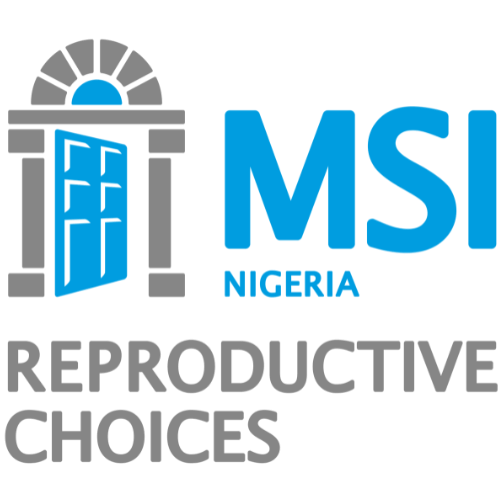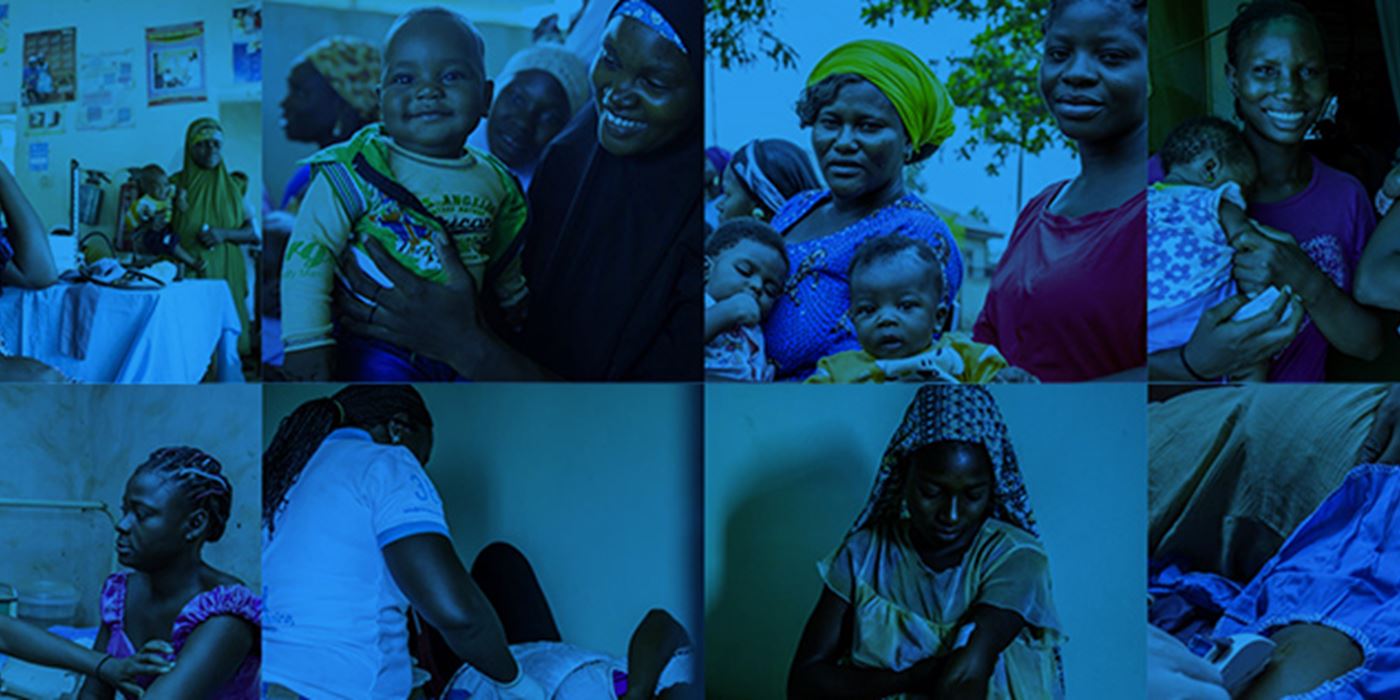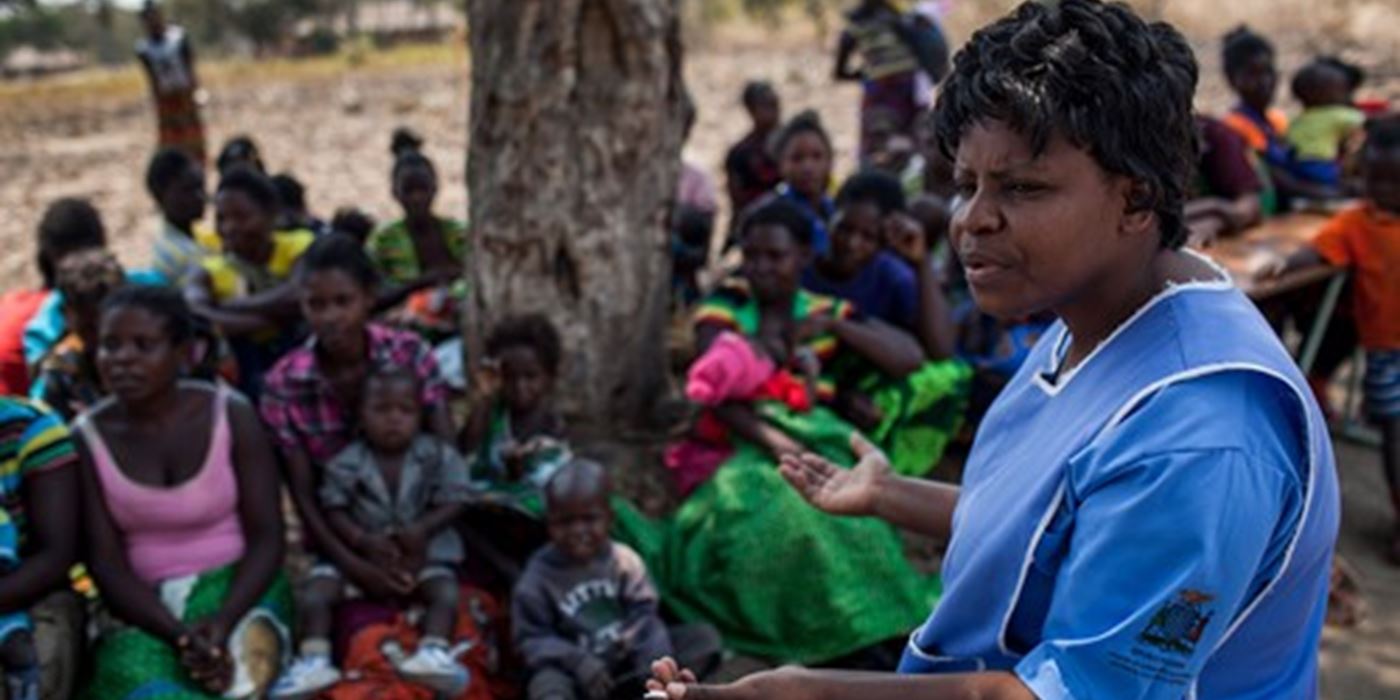
Advocacy visit to the Emir of Bichi Emirate Council, Alhaji Nasiru Ado Bayero with 10 district heads to support Family Planning Services.
More women would take up family planning services if they had their husbands or male partners’ support.
However, for most women, this support is lacking because social norms around sexual and reproductive health do not support male involvement in matters considered as women’s issues, and family planning is one of such issues. This lack of male involvement and support is a major barrier hindering women’s access and uptake of services.
At Marie Stopes International Organisation Nigeria (MSION), the ‘woman’ is at the centre of our intervention. Bearing this in mind, we adopted the human-centred design (HCD) strategy in 2019 and worked with representatives from our beneficiary communities to co-create solutions that will influence positive social norms and increase spousal support for modern contraception.
This is being implemented as part of activities under the Women’s Integrated Services for Health (WISH) project funded by the British Department for International Development (DFID). WISH is implemented to support Nigeria’s progress towards universal sexual and reproductive health and rights (SRHR). It is implemented in Bauchi, Gombe, Taraba, Yobe, Borno, Adamawa, Sokoto, Jigawa, Katsina, Kebbi, Kano, Zamfara and Benue states. Project partners include Marie Stopes International Organization Nigeria (MSION), Planned Parenthood Federation of Nigeria (PPFN), Ipas, Options and ThinkPlace.
Using the human-centred design strategy, MSION has worked with our beneficiary communities and stakeholders to generate insights and ideas aimed to improve spousal support. From these ideas, four prototypes have been rapidly tested and iterated in Jigawa, Kano, Sokoto, Borno and Bauchi with good outcomes as indicated below.
- The Business Start-up Kit – This prototype encourages men in communities to talk about family planning and to become family planning supporters to their partners. Tea vendors were recruited as family planning advocates and they engaged men who came to their shops on family planning conversations. The tea vendors gave out referrals to willing clients to visit nearby clinics where they could get free services with their wives. We found that this created male family planning advocates and strengthened the relationship between men and their wives. The tea vendors experienced an improved relationship with their wives because the strategy pulled the wives of the tea vendors into the business by helping them with startup kits for small side businesses that complemented their husbands’ tea business.
- The Healthy Relationship Kit – This prototype worked with trained Marie Stopes Ladies to distribute free “relationship kits” with lubricant, condoms and information to organically create a relationship with new customers and promote positive messages around sexual and reproductive health. The kits are meant to enhance the intimate relationship between husband and wife to increase the positive link between them and fosters open conversations between men and women about topics relevant to sexual reproductive health and rights. The outcome of this intervention improved relationships between husband and wife through open and honest dialogue fostered by intimacy. Our tests showed increased sexual intimacy and healthier relationships led to more confidence between couples to discuss planning births more openly. We also noted that an improved relationship between a husband and his wife made him recalculate the value of a large family size when he considers their well-being.
- The Male Peer Conversation – This prototype fostered peer-led conversations that leverage peer conformity by creating a situation where participants in a small group can talk about and see the need to adopt family planning as the majority of the group are choosing to do so. These small groups would consist of approximately 4-5 family planning supporters and 2-3 non-family planning men. During the testing, we trialed numerous group sizes and this was the most effective. The conversations created male support for their partners to access family planning services and achieve better health outcomes for women.
- ‘GAGARBADAU’ – the family planning advocate. This prototype used a series of video clips that show the journey of an influential man in the community along his path to discovering the benefits of family planning in his life. It featured the family planning advocate discussing some of the challenges surrounding marriage and family makeup with his in-peer group. This provided the men in the group opportunity to hear and discuss information to dispel myths and realize the potential benefits of having a smaller family size. The family planning advocate would discuss the steps he took in supporting his wife in taking up the services and finally what his life looks like now that his wife or wives use family planning. The video can be used during outreach activities, during halftime breaks at football matches and across social media platforms frequented by the target group. This was achieved by creating new positive definitions for existing language around healthy relationships, family size etc. As well as starting organic conversations led by peers addressing issues men care about.
These prototypes will be piloted for six months to understand effectiveness and scalability. At the end of this pilot stage, we hope to identify scalable prototypes in project locations such that men’s awareness would be heightened to the benefits of adopting and maintaining healthier family planning behaviours.








